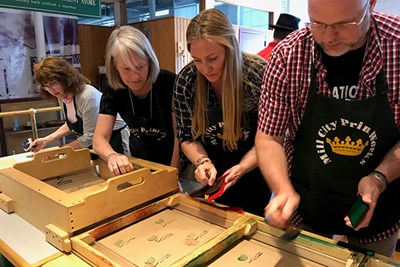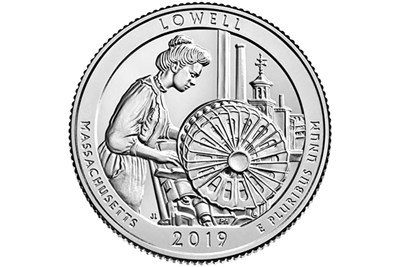Camps Run by College of Education and Lowell National Historical Park
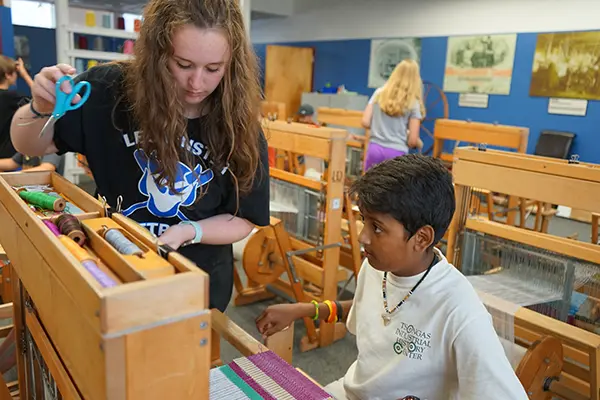 Image by K. Webster
Image by K. Webster
07/25/2019
By Katharine Webster
Summer campers at Lowell National Historical Park get a dose of history, ecology and technology with their outdoor games and ice cream.
From Boott Mills Camp, which introduces children age 8 to 12 to Lowell’s history, to National Park Adventures Camp, which takes campers age 10 to 14 on field trips to other national parks and sites in the region, the days are packed full of activities and fun.
Sharad Patel, 13, is a repeat camper who plans to apply for a junior counselor position next year.
“I want to learn how to be a good role model for the younger kids,” he says, on the final afternoon of National Park Adventures Camp. “The camp teaches you a lot of virtues, like respect and creativity.”
 Image by K. Webster
Image by K. Webster
As a parting gift, Patel hands a button with the words “Worship me, I am Bradley” to UMass Lowell history major Bradley Sherwood, a work-study student who has been a camp counselor and role model himself for the past three years.
A rising senior, Sherwood works year-round at the Tsongas Industrial History Center (TIHC), which runs the camp and other educational activities at the park. It serves 45,000 students a year through school trips, the camps and vacation drop-in activities. The center is a partnership between UMass Lowell's College of Education and the park.
Sherwood helps out with educational activities and in the curatorial department. His favorite job is as a counselor at the summer camps, because he gets to know the children, many of whom come back for more camps and workshops over school vacation.
“It’s not all history, history, history. We let them experience all of these different places, but in a fun way,” he says. “And they really do ask a lot of good questions.”
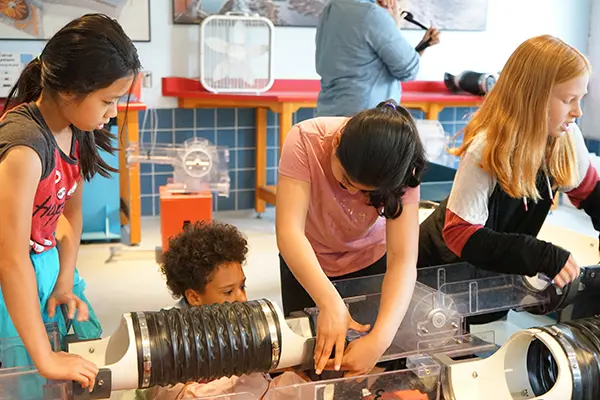 Image by K. Webster
Image by K. Webster
The classrooms make the center an ideal home base for the summer camps, including the one Patel attended. He was one of 20 campers who went on field trips to Boston National Historical Park, where they toured the USS Constitution – “Old Ironsides” – and walked part of Boston’s Freedom Trail; Minute Man National Historical Park in Concord and Lexington; the Boston Harbor Islands National Recreation Area; and Saugus Iron Works National Historical Site.
“We are uniquely situated because we have this great space available to us, these great workshops and great staff,” says Ellen Anstey, manager for administration and engagement at the TIHC. “And because here in Massachusetts, we can easily travel to other national parks.”
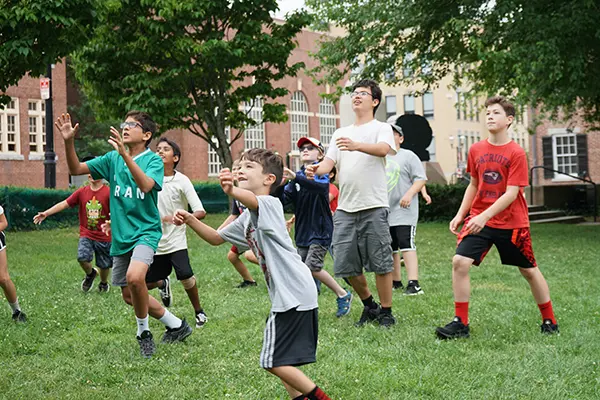 Image by K. Webster
Image by K. Webster
Other camps this summer include Eco-Explorers, which focuses on water power and the ecology of the Merrimack River and includes a trip to a New Hampshire park to explore tide pools, and Discovery, which combines natural science and engineering activities.
The summer camps change up their activities every year so that returning campers get to do different things while repeating favorite outings, like a trolley ride through Lowell and a boat ride up one of the city’s industrial canals.
Education rangers from the park and museum teachers from the college run the summer camps with help from Sherwood and several junior counselors, including Nia Bergeron, a senior at Tyngsboro High School who, with fellow former camper Lauren Fleury, a senior at Leominster High School, volunteers every summer. Bergeron is considering a career in education.
“I’m interested in teaching, but we just do this to help out with the kids,” she says. “I just love being with the campers.”

